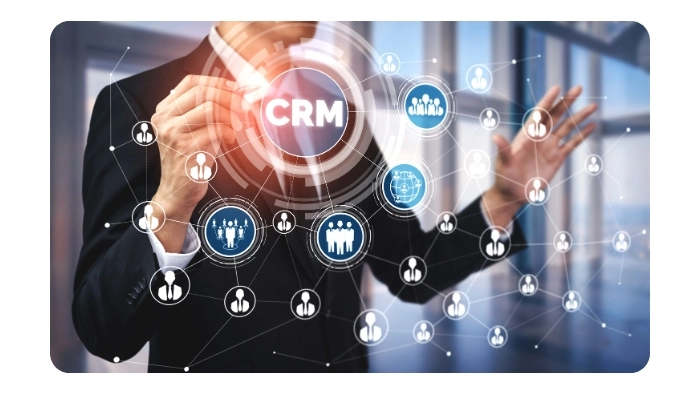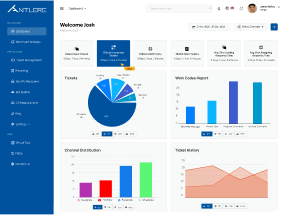What Is Contact Center CRM? Everything You Need to Know
Let’s say you are calling a company due to an ongoing problem. You have already told the story to two representatives; the third representative you are transferred to asks you to start from scratch. It is extremely annoying, takes up a lot of your time, and will have any customer thinking about using a competitor.
But now, think of the opposite: Every agent you speak to knows your issue immediately, remembers everything you spoke about previously, and helps solve your issue in minutes. Enter Contact Center CRM – a revolutionary tool that promises to transform the way your customer interactions work.
In a world that beats the drum of customer experience in a price-sensitive environment, businesses need to do much more than simply serve their customers. What they require is CRM call center software that turns interactions into opportunities for trust, loyalty, and sustainable growth.
CRM Full Form and the Basics of Contact Center CRM
The CRM full form is Customer Relationship Management. CRM is fundamentally a customer interaction tracking, analysis and enhancement application that deals with the relationship with the customer.
However, the context of contact center CRM takes at the next level. Rather than recording customer names and emails like just-a-CRM, it hooks into your communication systems, phone, live chat, social media, email – whatever you use.
Customer engagement pulls up all records related to a customer across channels — and that allows businesses to deliver personalized experiences consistently regardless of how the customer reaches out, and where.
Why Contact Centers Need CRM
Modern customers expect more than generic service, they want customer support CRM tools that allow agents to understand them instantly. Businesses deploy call center CRM systems because they:
- Ensure history and preferences are on-hand for agents to improve First Call Resolution (FCR).
- Reduce Average Handling Time (AHT) with quick access to customer context.
- Enable multichannel engagement voice, chat, SMS, email all from one platform.
- Enable CRM telemarketing, empowering sales teams with detailed lead and customer data.
The absence of CRM means contact centers run the risk of annoying customers, overwhelming agents and losing upselling and retention opportunities.

Key Features of Call Center CRM Software
Not all CRMs are created equal. The best CRM for call centers typically combines several advanced features.
- Contact Management CRM – Aggregated storage space for customer data communication history.
- Integration with Contact Center Phone Systems – Connects inbound and outbound calls with records.
- Customer Support CRM – Businesses can track tickets, manage cases, and monitor SLAs.
- Analytics & Dashboards – Track KPIs such as AHT, CSAT, and agent productivity while they happen.
- CRM Telemarketing Tools – Effectively organize outgoing campaigns and follow-ups.
- Omnichannel Capability – Unite email, chat, social, and phone in a single view
Thus, the call center CRM software goes beyond being a mere management tool and develops into an entire customer contact center software ecosystem.
The Impact of Contact Center CRM: By the Numbers 
The benefits aren’t just theoretical. Supporting statistics for the value of using a CRM system:
- Companies using CRM see a 29% increase in sales, 34% productivity boost, and 27% higher customer retention (Salesforce).
- 92% of businesses say CRM is crucial for meeting customer expectations.
- Contact centers using CRM for call center operations report up to a 30% reduction in handling times.
Metric | Without CRM | With CRM |
First Call Resolution (FCR) | 55% | 78% |
Customer Retention Rate | 65% | 85% |
Average Handling Time | 8 minutes | 4 minutes |
Agent Productivity | Low | 25–35% higher |
To be clear, having a CRM system call center is not an option – indeed, it is a mission-critical.
Real-World Example: CRM in Action
Is it a retail company who is getting more online sales? Without CRM, agents bounced around spreadsheets, siloed ticketing systems and call logs. Repeated complaints from customers, which took time to process, added to the dissatisfaction.
Then one day, we decided to implement a call center CRM software solution. And everything changed:
- Customer data was centralized through a contact management CRM.
- CRM customer service tools allowed cases to be resolved within minutes.
- Sales teams leveraged CRM telemarketing to convert more leads.
In six months they saw a 40% improvement in their CSAT (Customer Satisfaction Score) and a 20% reduction in operational costs.

Contact Center CRM vs Traditional CRM
Simultaneously, there is a strong possibility to confuse general-purpose CRMs with CRM contact center systems but, in fact, both solutions are not identical.
Feature | Traditional CRM | Contact Center CRM |
Focus | Sales & marketing pipelines | End-to-end customer support |
Integration | Limited phone integration | Seamless with contact center phone systems |
Key Tools | Lead management | Ticketing, call routing, omnichannel support |
Example | Salesforce Sales Cloud | Salesforce Service Cloud, Freshdesk, Zoho Desk |
Top CRM Solutions for Contact Centers
There’s no one-size-fits-all when it comes to choosing the best contact center software. Different industries and businesses require different tools. Here are some top players:
- Abacus Outsourcing CRM Services – A trusted partner offering tailored customer contact center software solutions designed for scalability, global clients, and seamless agent productivity.
- Salesforce Contact Management – Best for enterprises needing advanced customization.
- Zoho CRM & Desk – Affordable option for SMBs.
- HubSpot CRM – Strong marketing integrations.
- Freshdesk Contact Center – Great for omnichannel support.
- Zendesk CRM Contact Center – Known for intuitive UI and customer-first workflows.
How to Select the Right CRM for Call Centers
When evaluating vendors, businesses should focus on:
- Integration: Does it work with your current software contact center platforms?
- Scalability: Can it support growth into an enterprise call center platform?
- Usability: Is the call center CRM software easy for agents to adopt quickly?
- Support: Are the vendors reliable, like established contact center software providers such as Abacus Outsourcing?
The Future of CRM in Contact Centers
Enterprise cloud contact center software will propel the next wave of innovation over the course of a decade. Predictive analytics and automation (thanks to AI powered enterprise call center software) will allow customer service to be far more proactive than reactive.
CRM systems, ranging from outbound call center CRM software to full enterprise cloud call center software platforms, will involve AI in over 95% of customer interactions by 2030.
Conclusion: Why Abacus Outsourcing Is Your Trusted Partner
At its core, a CRM contact center is all about making every customer interaction an opportunity to build a relationship. Whether CRM telemarketing, or complex support tickets, the right system lays the foundation for your business to handle every point of contact with confidence.
Abacus Outsourcing is probably the best contact center partner among all to choose from. Abacus possesses acute experience in crafting scalable, customized, and specific call center CRM solutions for businesses around the globe to upgrade customer engagement at reduced costs and improved productivity.
Ready to elevate your customer experience?
Partner with Abacus Outsourcing and harness the power of CRM call center software to deliver service that keeps customers coming back.











